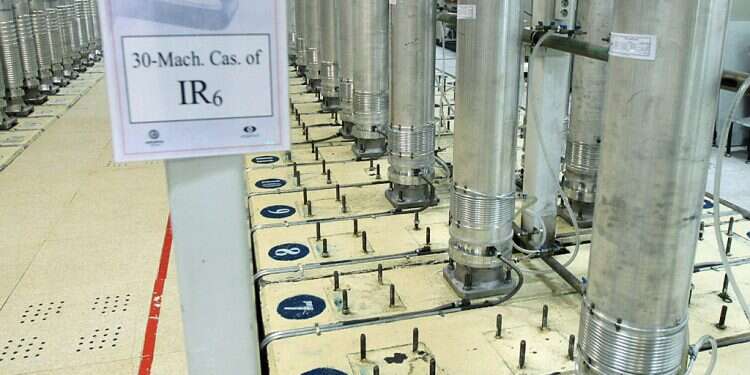With or without an agreement, Iran will be a nuclear state and have a nuclear weapon within five years, tops," Finance Minister Avigdor Lieberman said Tuesday, speaking at a conference hosted by the Lauder School of Government, Diplomacy and Strategy at Reichman University (IDC) in Herzliya.
Follow Israel Hayom on Facebook and Twitter
Prime Minister Naftali Bennett also addressed the conference, telling the audience that Israel must and would maintain its operational leeway with regards to the Iranian threat and it will not be bound by any new Iranian nuclear deal with world powers.
Bennett, who took power in June, described Iran as being at "the most advanced stage of its nuclear program," and signaled readiness to step up Israel's confrontation with the Islamic republic.
"We face complicated times. It is possible that there will be disputes with the best of our friends," he said. "In any event, even if there is a return to a deal, Israel is of course not a party to the deal and Israel is not obligated by the deal."
Bennett voiced frustration with what he described as Israel's smaller-scale clashes with Iranian proxies in the Middle East.
"The Iranians have encircled the State of Israel with missiles while they sit safely in Tehran," he said. "Pursuing individual terrorists sent out by [Iranian black-ops] Quds Force no longer makes sense. We must go after those who send them."
Stopping short of explicitly threatening war, Bennett said cyber technologies and what he deemed Israel's advantages as a democracy and international support could be brought to bear.
"Iran is much more vulnerable than is commonly thought," he said.
"After such a long period of investing in pressuring Iran via threats, there is now a need to reflect on what we have achieved and to recalibrate the intense efforts being made," the prime minister explained.
"We must utilize our relative advantages against Iran's vulnerabilities in a far more effective way than was done in the past."
Israel, he noted, "Must widen the gap between ourselves and our enemies, each and every one of them, investing in strengthening our capabilities – missiles, cyber, other technologies – and we also have to increase officer pay in the IDF. We have to build up our strengths to the point where our superiority is undeniable and will deter others from challenging us.
"Israel must preserve its freedom of action along with the ability to take action – in any situation and under any political circumstance."
The ayatollahs' regime, Bennett continued, is a decaying, useless regime, with a weak economy and a corrupt administration, and they maintain their hold on power by force and by instilling fear.
"We are at a critical juncture in our prolonged struggle against them; and this struggle is not just Israel against Iran, rather the entire world against this extremist Islamic regime.
"We hope very much that the rest of the world will not shrink from this fight, but even if they do, we have no intention of doing so," he said.
"Complex times now lie ahead, and it is possible that we will have to deal with disagreements with some of our closest allies – but this will not be the first time such a thing has happened," Bennett stressed, alluding to Jerusalem's difference of opinion with Washington on how the Iranian threat should be handled.
Concluding is speech, Bennett stressed that "even if the nuclear deal is renewed, Israel is not a signatory to it and we will not be bound by its terms. We are not going to repeat the mistake we made after the first deal was signed in 2015."
Subscribe to Israel Hayom's daily newsletter and never miss our top stories!




